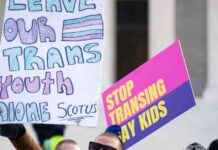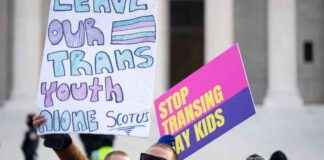Can the President Override Congress on Spending?
In a recent turn of events, President Donald Trump, in conjunction with Elon Musk’s Department of Government Efficiency (DOGE), made a bold move by abruptly shutting down the U.S. Agency for International Development, leaving thousands unemployed and casting a shadow over U.S. foreign diplomacy and aid programs. This surprising decision has sparked questions and debates surrounding the president’s authority in overriding Congress on spending matters.
The Impoundment Control Act of 1974 serves as the cornerstone in regulating when and how a president can withhold money that Congress has allocated. While the president is not permitted to spend more than what Congress has approved, the issue arises when considering whether the president can spend less than what Congress has intended. This intricate balance between executive and legislative powers has been put into the spotlight due to President Trump’s recent actions and statements challenging the constitutionality of the Impoundment Control Act.
Historical Context of Impoundment
The concept of impoundment dates back to the early days of the United States, with presidents like Thomas Jefferson and Richard Nixon grappling with similar issues of fiscal authority. However, it was during Bill Clinton’s presidency that impoundment laws were further solidified and codified, setting the stage for the modern interpretation of executive spending powers.
In the case of President Trump’s recent move to dismantle a federal agency and freeze trillions in federal funding, constitutional scholars and judges have been called upon to weigh in on the legality and implications of these actions. The ramifications of such decisions extend beyond mere budgetary concerns, impacting critical areas such as state funding for essential services like education, public health, and infrastructure.
The Implications and Controversies
The fallout from the shutdown of the U.S. Agency for International Development underscores the delicate balance of power between the branches of government and the potential consequences of unchecked executive authority. As the debate rages on, experts and policymakers are closely monitoring the situation to assess the long-term effects on domestic and international programs that rely on government funding.
While President Trump’s stance on the constitutionality of impoundment laws has stirred controversy, it has also sparked a broader conversation about the limits of presidential power and the role of Congress in overseeing federal spending. The implications of these debates extend far beyond the realm of politics, touching the lives of everyday Americans who rely on government programs and services for their well-being.
In conclusion, the intersection of presidential authority and congressional oversight remains a complex and evolving issue that requires careful consideration and analysis. As the nation grapples with the aftermath of the recent developments, it is crucial for citizens to stay informed and engaged in the dialogue surrounding government spending and accountability. Only through a collective effort to uphold democratic principles and constitutional norms can we ensure a transparent and efficient system of governance that serves the best interests of the American people.
Find more Planet Money: Facebook / Instagram / TikTok / Our weekly Newsletter. Listen free at these links: Apple Podcasts, Spotify, the NPR app or anywhere you get podcasts. Help support Planet Money and hear our bonus episodes by subscribing to Planet Money+ in Apple Podcasts or at plus.npr.org/planetmoney. Music: Universal Music Production, “Hi-Tech Expert,” “Black Excellence,” and “Walk The Dream.”



















